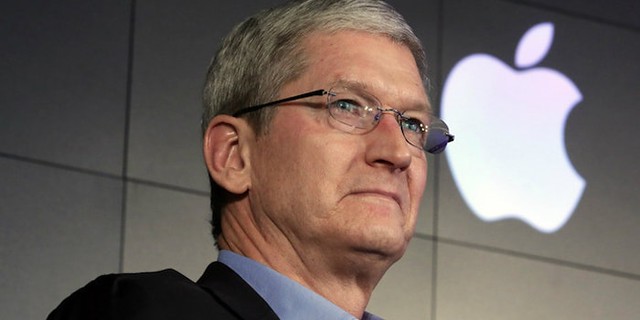 POLICY
POLICY
 POLICY
POLICY
 POLICY
POLICY
Apple Inc. received a fairly high level of support from its shareholders over the matter of free speech in China as the company met for its annual meeting today.
The issue at hand was the fact that in 2017 Apple removed 634 virtual private networks from its Apple Store at the behest of the Chinese government. At the time, Apple was blasted by free speech advocates, seeing as activists in China had used those VPNs to get around China’s Great Firewall. In 2018, also at the request of the Chinese government, Apple delisted the New York Times app.
Nearly 41% of shareholders supported a proposal for Apple to be “publicly committed to respect freedom of expression as a human right,” a significant number. But it was still defeated.
Chief Executive Tom Cook (pictured) didn’t mention the obvious reason for Apple’s moves — the bottom line — and instead said it was in everyone’s interest to adhere to the laws and regulations where the company operates. Cook added, in a common refrain for U.S. companies defending their cooperation with dubious regimes, that it wasn’t “in the best interest of our users to simply abandon markets, which would leave consumers with fewer choices and fewer privacy protections.”
Cook also said Apple intends to open its first retail store in India next year. “We needed to get approval from the government to go in there ourselves,” he said. “I don’t want somebody else to run the brand for us.”
The coronavirus came up, naturally, an issue that has affected many large tech companies. Apple reiterated what it said recently, that revenue will certainly be reduced because Chinese suppliers aren’t delivering enough iPhones. Cook said that was definitely a “challenge” for the company, although some suppliers are already getting up to speed and many of the previously closed Apple stores in China have now reopened.
On the subject of Apple giving a year’s free subscription for Apple TV to anyone who buys Apple hardware, Cook sounded something like a second-hand car salesman, stating, “It’s absolutely crazy that we did this, but we did it.”
Not least, Apple standing firm on the fact that it won’t create backdoors and work-arounds for encryption for when law enforcement might want access to devices. Cook said Apple will always help investigators, but when it comes to encryption, “you can never have a backdoor just for the good guys.”
THANK YOU